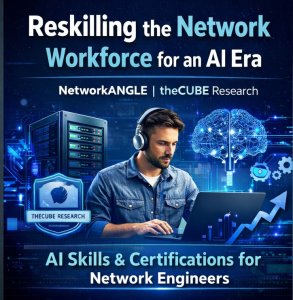
IBM unveiled a wide range of important new hybrid cloud and artificial intelligence (AI) offerings this week at its annual Think conference in Las Vegas.
Bolstering its already impressive hybrid cloud capabilities, the vendor launched IBM Cloud Private for Data. This is a new integrated on-premises platform for data science, machine learning, data engineering, and application building. It incorporates a fast in-memory database that can ingest and analyze as much as one million events per second coming from IoT sensors, mobile devices, and other sources. In support of the AI DevOps pipeline, IBM Cloud Private for Data:
- Allows developers to combine on-premise and public cloud data when building, training, deploying, and managing machine learning (ML), deep learning (DL), and other AI models;
- Keeps data in a protected, controlled environment for development, deployment, and management of AI applications behind the firewall;
- Supports integrated metadata-driven search for this data to facilitate the AI DevOps pipelines;
- Supports Kubernetes-based microservices orchestration of AI apps, supporting Docker containers and Cloud Foundry;
- Includes tools for cloud management automation, data encryption, object storage and DevOps;
- Includes key capabilities from IBM’s Data Science Experience, Information Analyzer, Information Governance Catalogue, Data Stage, DB2 and DB2 Warehouse solutions; and
- Includes containerized versions of IBM’s app development and management software, including API Connect, UrbanCode and Netcool, as well as support for Windows containers running .Net apps.
Strengthening its AI capabilities, the vendor launched the following new solutions at Think 2018:
- IBM PowerAI in IBM Cloud: IBM announced that it is bringing its PowerAIDL distribution to IBM’s public cloud. It includes implementations of popular DL frameworks (TensorFlow, Torch, Caffe, etc) that have been optimized for IBM Cloud.
- IBM Power9 on IBM Cloud: IBM announced that users can provision Power Systems servers, incorporating an AI-optimized version of the Power9 processor, to IBM cloud.
- IBM Watson Studio: IBM announced this integrated environment, delivered as a SaaS offering on IBM Cloud, for developing, training, deploying, and managing models. It visualizes insights with dynamic dashboards, automatically tunes AI/DL/ML model hyperparameters, and allows developers to access pre-trained models from the Watson Services such as Watson Visual Recognition. It allows developers to use a standard REST API to train their models with the resources they want. It lets them bring in non-structured data, automate AI model management. It offers a choice of AI/DL/ML frameworks, including TensorFlow, Caffe, PyTorch, and Keras. It offers a command-line interface, a Python library, and an interactive user interface. It strengthens IBM’s drag-and-drop interface to build analytics models using SPSS Modeler.
- IBM Deep Learning as a Service (DLaaS): IBM launched this service to help developers develop deep learning (DL) and other AI models within Watson Studio. Available through Watson Studio, DLaaS enables developers to run hundreds of DL training models concurrently in IBM Cloud, without the need to build and maintain costly hardware to run AI experiments. DLaaS supports several popular DL libraries, including TensorFlow, Caffe and Torch. It incorporates an orchestration layer that facilitates rapid learning from massive data sets in a parallelized fashion across compute nodes. It also features a resource provisioning layer that enables jobs to be managed across heterogeneous resources, such as GPUs and CPUs executing in parallel. Users simply collect and organize their data before uploading it to the service, at which point DLaaS will automatically start the training and stop when the job is completed, provisioning resources so the user doesn’t overpay.
- IBM Watson Data Kits: These are new, industry-specific, machine-readable data sets that accelerate AI development pipelines. They help developers to build and train AI-powered web and mobile experiences for industry-specific applications. Due for general availability in Q2 2018, the first kits will serve the travel, transportation and food Industries. In the coming months, IBM will release Watson Data Kits tailored for additional industries.
- IBM Watson Assistant: IBM launched this AI-powered digital assistant to help business users access data by voice or text, and integrate customers’ IBM connections. It can continually learn a user’s preferences, thereby supporting predictively personalized experiences. Users can interact with the assistant through natural conversation, and pick up wherever the chat left off, no matter the location. The user can opt to allow Watson Assistant to share their personal data securely with brands. It supports connections to the rest of the IBM ecosystem, thereby allowing brands to better gather data and understand the individual preferences of their customers. IBM has already developed domain-specific solutions on top of Watson Assistant for automotive and hospitality applications.
In terms of partnership-related announcements at Think 2018, the most significant were the following, which advance the vendor’s value proposition in building and deploying AI for cloud and edge computing environments:
- IBM Power9 Servers with Nvidia GPUs in IBM Cloud: IBM launched of the third generation of Power Systems servers in the IBM Cloud. These servers are designed around the recently launched Power9 RISC processorand Nvidia Tesla V100 GPUs. Incorporating the high-speed NVLink interface, these servers are especially powerful when it comes to training ML models.
- IBM Watson Services for Apple’s Core ML: IBM and Apple announced support for combining IBM Watsonmachine learning with Apple Core ML to support development of AI-powered business apps for Apple devices. Apple’s Core ML enables developers to move ML models from frameworks such as TensorFlow or Caffe—and now IBM Watson–to apps running on iOS devices. Developers can leverage code examples, code patterns, and starter kits to quickly build iOS apps that combine Watson services with other components. Developers can use Watson SDK or Watson Studio to build ML models, leveraging an enterprise repository to train the model. It converts those models into Core ML and can incorporate them in any custom business app. In addition, IBM announced a cloud console to simplify the connection between the Watson model building process and inserting that model in the application running on the Apple device. Over time, the app can share data back with Watson and thereby improve ML algorithms running on edge devices.
To help customers with their journeys deploying AI into the cloud, IBM also announced its new Data Science Elite Team. This is a no-charge consultancy that advises clients on data science, machine learning and AI adoption. Under this program, a dedicated team of data scientists, machine learning engineers, and decision optimization engineers assists clients on-site. Client engagements center around specific use cases and deliver a discovery workshop to help clients understand their data environment and break their data science initiatives down into 3 to 4 discrete deliverables that can each be realized in two to three weeks. Following the workshop, the team provides clients with access to powerful data science strategies, technologies and methodologies through data science sprints and validation.
Here is what IBM VP Rob Thomas had to say about IBM’s larger strategy on theCube at Think 2018. And please visit theCUBE’s IBM Think event page to view all the interviews so far.


